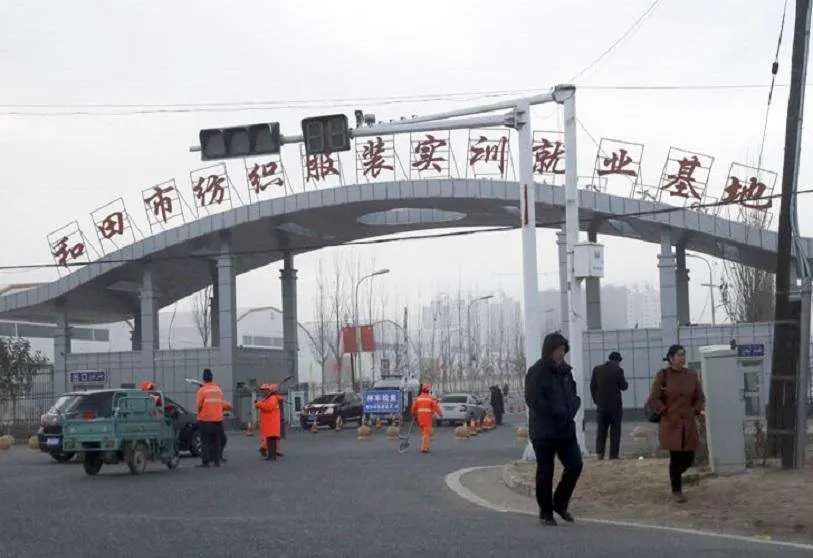Who cares about the Uighurs?

In the Arab-Muslim world we are inundated with images of the conflicts raging in the Middle East. Not a day goes by without Arab television channels - regardless of their political colour - broadcasting images of the Israeli-Palestinian conflict, of children in detention, of prisoners on hunger strike, of peasants dispossessed of their land...
This sad reality is often broadcast on social networks. The images are shared on a large scale, commented on and arouse indignation and condemnation.
The uproar caused by the injustice in Palestine is far from being matched when it comes to the misfortune of the Uighur Muslims in China. This Turkic-speaking minority suffers terrible repression by the Chinese central government, without the Muslim world showing the slightest sympathy for them.
This lack of media coverage, of images, is nothing more than a reflection of Arab policies towards China.
Today the whole world knows that a million Uighurs live in detention centres, that they are subjected to forced labour, that they suffer from a policy of cultural asphyxiation and brainwashing.
Officially, China tries to de-radicalise them and accuse them of being terrorists for belonging to Islam. The authorities indiscriminately detain activists and ordinary citizens on implausible grounds and without fair trial.
Uighurs are the majority in northwest China. This region, known as East Turkestan, was renamed the "New Frontier" of Xinjiang by the Chinese Communist Party (CCP) in 1949. Since the riots and unrest in the region in 2009, it has been in the crosshairs of Beijing, which has put in place a battery of 75 indicators of religious extremism. Among these criteria, not drinking alcohol or refusing to eat pork is a sign of religious radicalisation and punishable by imprisonment.
The security measures put in place by the Chinese authorities to check every citizen are commensurate with the suspicions that weigh on this ethnic minority. Facial recognition systems and checkpoints are part of everyday life for the people of Xinjiang.
Inside the internment camps, prisoners are forbidden to speak their mother tongue, and cameras constantly monitor them in their cells, corridors and even in the toilets. Daily life in these mushrooming prisons is divided between Chinese history courses and statements to the glory of Xi Jinping. Every morning, the prison staff inject the prisoners with products that end up dulling them. Women who survived these camps denounce forced sterilisations.
While the Western media is just beginning to take an interest in these minorities, the Arab press remains deaf to this repression.
The notion of the Muslim Ummah includes a supposed solidarity between people of the same religion. However, this concept does not seem to work in the face of mighty China and no government is in a position to hold Xi Jinping to account because the stakes are so high.
What do the lives of these Uighurs weigh when we know that 50% of China's oil comes from the Gulf, while a significant part of its gas is supplied by Iran and Qatar. According to Open Diplomacy, between 2018 and 2020, China invested almost $200 billion in Arab countries, including $77 billion in the Gulf countries.
It is also China that is building the nuclear sites in Iran, thus nipping the mullahs in the bud, who also do not seem to care about the fate of these 12 million Muslims. On China's deal board, Iran has the lion's share. Beijing is trying to "sign a far-reaching agreement with Tehran". Negotiations, launched in 2016, have been accelerating since the summer of 2020. This project envisages colossal investments of 400 billion dollars over 25 years in key sectors of the Iranian economy: telecommunications, ports, railways, in exchange for cheaper oil for China," adds Open Diplomacy.
In 2002, the creation of the Sino-Arab Cooperation Forum completed the picture of juicy cooperation with several countries, including Egypt, the United Arab Emirates and Kuwait, not to mention Qatar. Xinjiang is part of the new Belt and Road Initiative (BRI) project launched by Beijing in 2013 and needs its Middle Eastern neighbours more than ever to connect Europe with Asia.
As for the Sino-Saudi relationship, it is at its peak. The strengthening of relations between the two countries has been steadily confirmed, as evidenced by Saudi investments in Chinese refineries and naval exercises between the two allies in 2019 in Jeddah that speak to their security arrangements. Moreover, the opening of a Chinese drone factory in Saudi Arabia appears imminent.
Although Uighurs often flock to Turkey to escape Xi Jinping's authoritarian regime, their days seem numbered in Erdogan's territories. China ratified an extradition treaty with Turkey on 26 December, and the Uighurs know they are in the firing line, even if Erdogan wants to reassure them. "This only applies to people who are guilty (of crimes). In the past, Uighurs in Turkey have been asked to be returned to China. Turkey has not applied these measures," the Turkish foreign minister said in January. However, for Beijing, the Uighurs are guilty of terrorism and are therefore considered criminals. Will Ankara look into the matter on a case-by-case basis? Will it hand over the Uighurs to China? The Silk Road will tell.

